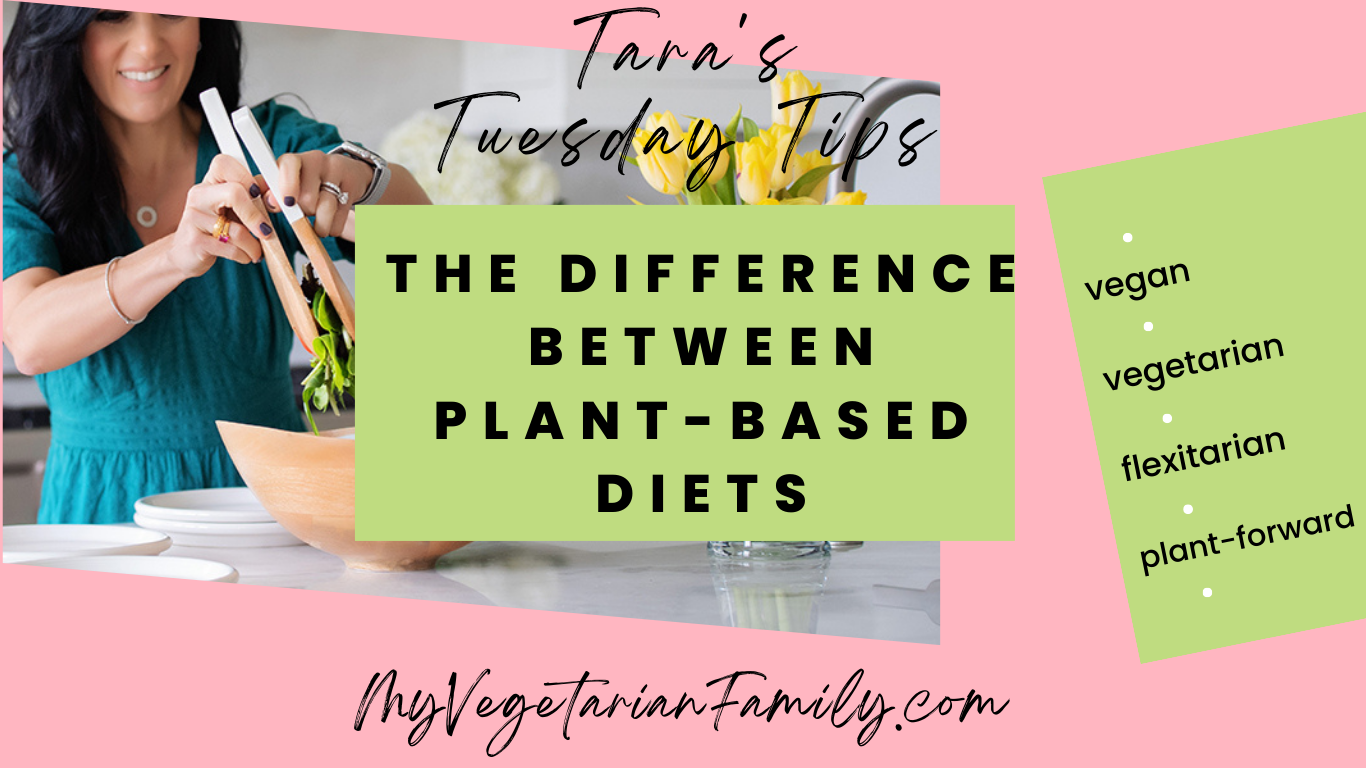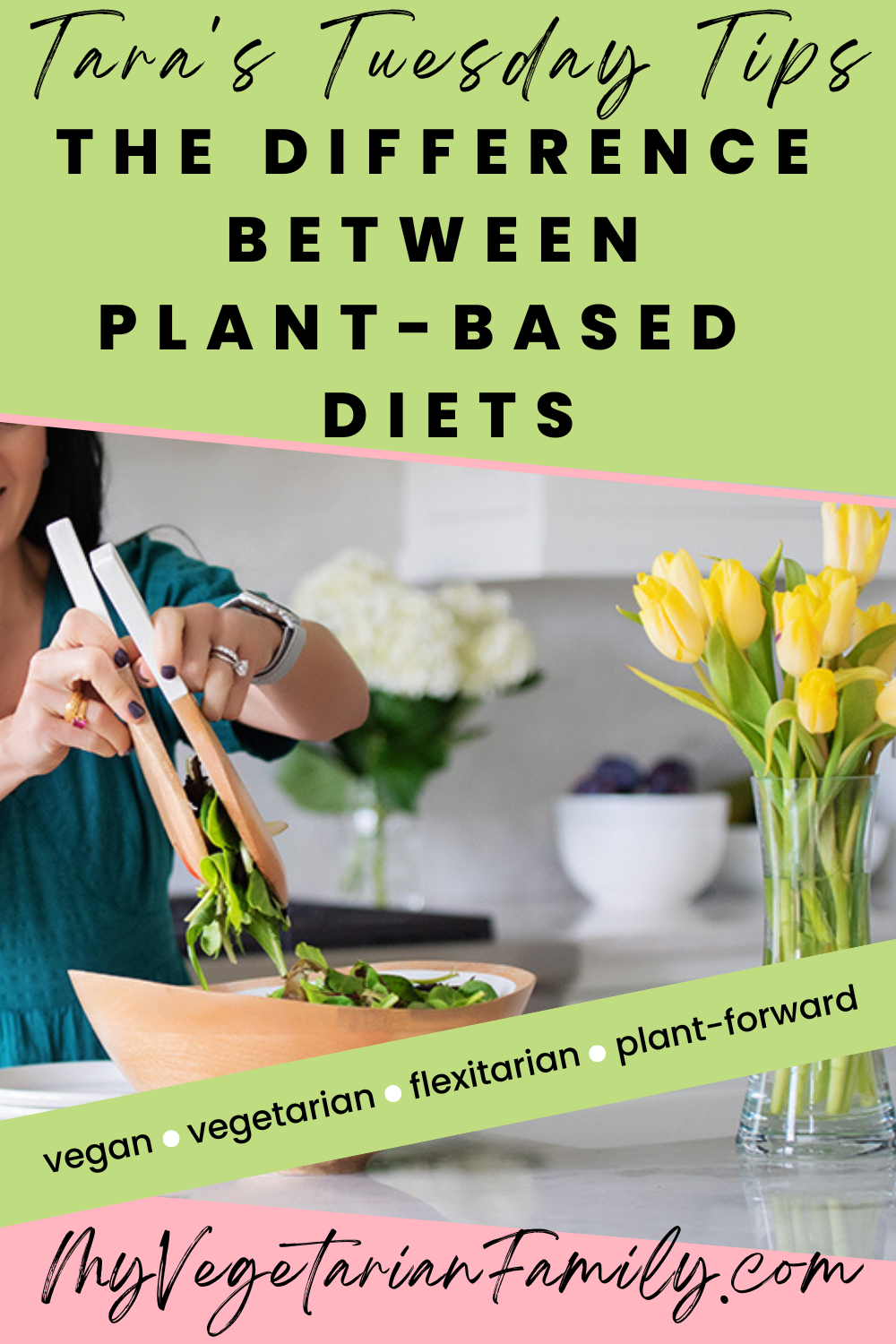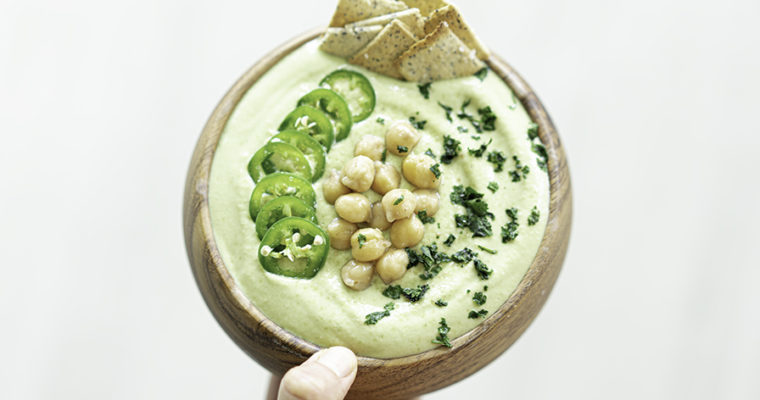Vegan, vegetarian, plant-based, plant-forward. It can be tough to keep these terms straight without making your head spin. The word vegan can be quite polarizing to some, making them afraid to label themselves as such. Or, have you ever heard someone refer to themselves as plant-based but eat fish or dairy or other animal products? So, is this cheating? Who makes the rules and how do we know where we fall in this diet labeling? Today I will help take the guess work out of the difference between plant-based diets. I will also give you some simple definitions to help demystify the plant-eating terms floating around.
There are more reasons than I can fit on this page why people choose to eat plants over meat. Some of these are rooted in religious beliefs, environmental concerns, the ethical treatment of animals, for health reasons, or it could even be a financial decision. Plant-leaning eating is becoming more popular and more accepted globally. With the widespread availability of plant-meats, and restaurant offerings, it is easier than ever to be a meat-free eater. Where do you fit in? Let’s find out together.
Tara’s Tuesday Tips:
The Difference Between Plant-Based Diets
What does it mean to be a vegan?
Vegan means that the person commits to no consumption of animals or animal products. Strict vegans avoid leather, wool, silk, honey, casein, and any products that have been tested on animals.
What is the difference between vegan + vegetarian?
Vegans avoid all animal products and byproducts while most vegetarians include eggs + dairy in their diets.
What are the different types of vegetarians?
- Lacto-Vegetarians exclude meat, fish, poultry + eggs but consume dairy.
- Lacto-Ovo-Vegetarians exclude meat, fish, poultry but consume eggs + dairy.
- Ovo-Vegetarians exclude meat, fish, poultry + dairy but consume eggs.
- Pescatarians are not technically vegetarian as they consume fish but exclude meat + poultry. Most people that refer to themselves as pescatarian also call themselves vegetarian. So, I felt it appropriate to clarify it here amongst the other types of vegetarians that include some form of animal products in their diets.
What is flexitarian?
Flexitarians consume a mostly vegetarian diet occasionally including meat, fish, or poultry. Sometimes referred to as partial vegetarians as they are mostly vegetarian but reserve the right to eat meat occasionally. Some flexitarians reserve their meat eating days for special occasions that mean a lot to them such as turkey on Thanksgiving or hot dogs on July 4th so in good conscience, call themselves flexitarians instead of vegetarian. Check this out: Tips To Make Going Plant-Based Easier.
Is plant-based the same as being vegetarian?
No. These terms are incorrectly interchanged a lot! Plant-based means eating more plants and less meat products, but does not necessarily mean cutting out all meat products. Plant-based is more flexible than vegetarianism and is synonymous with plant-forward eating. My other article might help demystify this for you: What Is A Whole Food, Plant-Based Diet?.
Does a plant-based diet include meat?
Sometimes, yes. Being plant-based does not mean you necessarily cut out all meat and dairy. It does mean that you prioritize vegetables, legumes, whole grains + fruits. Worried you will miss meat if you become vegetarian? Read this: How To Stop Meat Cravings As A Vegetarian.
What is plant-forward eating?
Everyday eating that includes more plant-based foods + less animal-based foods. Getting more plants on your plate and in your cooking is the goal of a plant-forward approach to eating. This type of eating ranges from those that follow a strict vegan diet and consuming no animal products to as simple as preparing meals that incorporate more plants + whole foods. Flexitarian and plant-forward are very similar. “Plant-rich” is another term used to describe this way of eating. I go into lots of detail on this topic here: What Is Plant-Forward Eating?.
What is the difference between plant-forward + whole foods plant-based (WFPB)?
The names are similar, but the eating style is very different! These are two opposite ends of the spectrum. Someone who considers themselves a strictly whole foods plant-based eater is someone who eats only foods that contain absolutely no animal products, and their diets are also free from processed foods. This is very different from plant-forward! A plant-forward person tries to prioritize plants by looking for ways to use more plants in their cooking, centering meals around a plant with some animal products occasionally mixed in. There is no restriction in a plant-forward approach. WFPB is a very strict approach to eating excluding anything processed including oils. Check this out: Is Oil-Free Right For You?
Do vegetarians or vegans consume honey?
If you avoid all animal products or are vegetarian or vegan for the protection of animals, the answer is no. Some vegans/vegetarians still eat honey as its production does not include widespread killing or mistreatment of animals. However, bee farming does include exploitation of bees in a commercial farming capacity and “steals” the honey from the bees who have made it for their own survival (plus other practices to enhance honey production). Therefore, ethical vegans choose not to support these practices and do not consume any honey.
Food For Thought: I am a vegetarian 💚
In case you were wondering, I am vegetarian. I am not a huge fan of labels, but as CEO of My Vegetarian Family blog and its subsidiaries, I am ok with this label 🙂. I will not ever consume any meat or eggs. As I have grown and evolved in my plant-based journey, I am definitely more WFPB leaning as we limit our oil + processed food intake as much as we can. In an effort to optimize my health + athletic performance, I feel that getting as close to vegan as I can is where I feel best. I still drive a car with leather seats + own a few silk pieces of clothing + enjoy a slice of cheese pizza after a marathon. Labels can be dangerous and box us into a place where we become uncomfortable + unhappy. Labels can also prevent us from enjoying good food in the company of good people. So, if you choose to label yourself, pick one that makes you feel like the best version of yourself.
That, my friends, is all the wisdom I have for you this Tuesday. I hope it helps you + your plant-based journey.
All the best,
Tara 💚
⭐Did you learn The Difference Between Plant-Based Diets? Have more questions? Leave a comment below!
📸I love to see your creations! Follow me on Instagram @myvegetarianfamily and hashtag it #myvegetarianfamily
📩Be sure to subscribe here to my weekly emails for tips + recipes so that you never miss a veggie thing!




Hi Tara. Thanks for sharing your knowledge and research with us. I really enjoyed this article. My family and I have been “vegan” for approximately 36 years, and we love it! We do eat honey, and use some leather goods, but far less than we used to. However, we don’t use dairy, eggs, or any flesh meats. We are striving to eat mostly vegetables, and a smaller proportion of grains at each meal. Even our sugar intake has greatly reduced over the years. We are just trying to live our best lives including proper diet and exercise, among other health promoting practices. I hope we’ll get to meet again someday. Continue to enjoy the journey!
Hi Dee! Thank you for your comment! I think labels box us into things that sometimes don’t serve us! It is so wonderful to hear that you have found happiness on your plant-based journey! – Tara